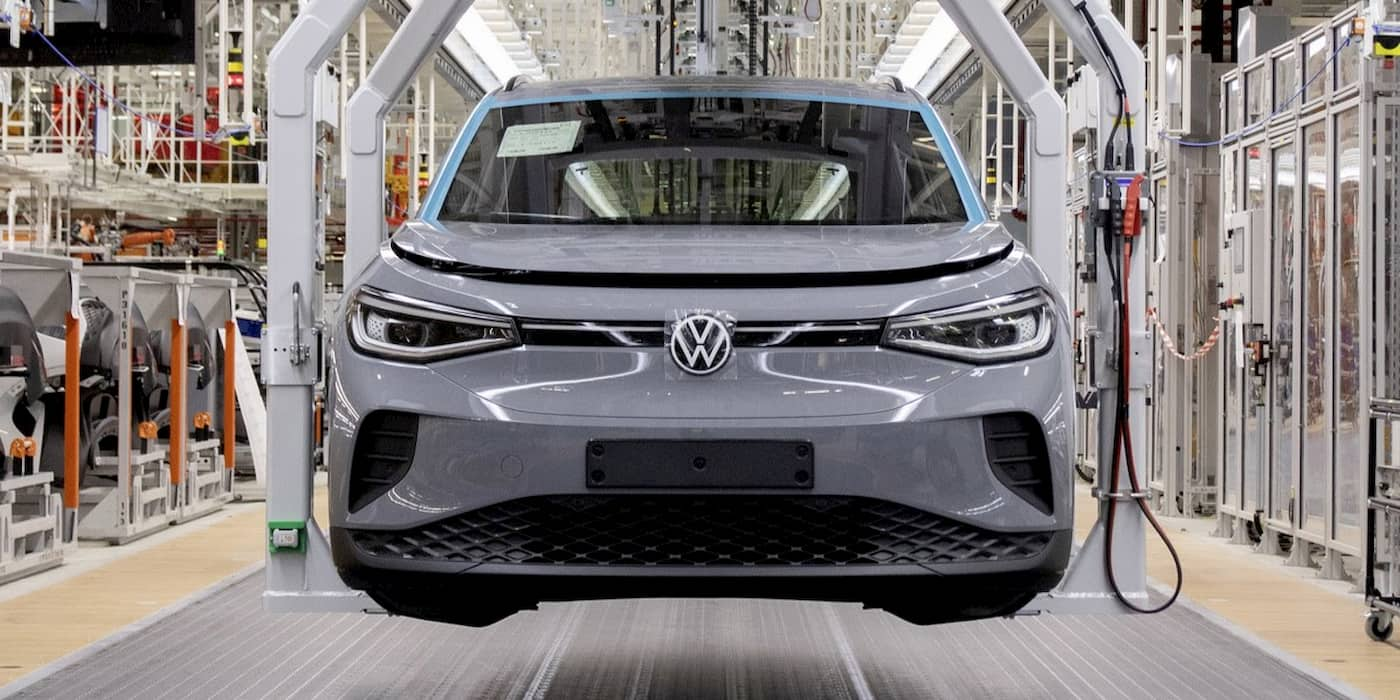
A brand new report says European automakers, together with Volkswagen and Jaguar Land Rover, needed to pay $552 million in fines for lacking carbon emissions targets in 2020, the primary 12 months new laws had been launched.
Whereas fines have been dramatically lowered lately by pooling carbon emissions between corporations and producing extra BEVs, the subsequent huge push will come subsequent 12 months as targets are tightened once more.
In 2020, the primary 12 months new laws had been launched, European carmakers paid about 510 million euros ($552 million) in fines for lacking their carbon targets Automotive Information Europe.
Volkswagen and Jaguar Land Rover had been among the many hefty fines, with VW saying it paid greater than 100 million euros ($106 million) in fines as a result of it missed its 2020 goal by 0.75 grams per kilometer. In October 2021, Jaguar Land Rover stated it had paid a positive of about 35 million kilos, or about $43.5 million, after lacking its goal by about 3 grams/km.
Added to the record had been Suzuki, Subaru, Bentley, DR Motor, Lamborghini and McLaren, though the precise fines paid by every automaker couldn’t be decided.
Out of Automotive Information Europe:
In accordance with EU figures, Suzuki missed its goal by 10.4 g/km, which corresponds to a positive of virtually 1,000 euros per car. If 160,570 registrations had been counted in the direction of the goal, the penalties could be round 160 million euros.
Subaru missed its goal by 34 grams, which corresponds to a positive of three,230 euros per car. With 16,176 registrations, the positive could be round 52 million euros.
The CO2 goal for 2020 was 95 grams per km within the outdated NEDC check cycle and round 120 g/km within the new WLTP cycle. It is usually a extremely complicated system with quite a few corporations with particular person targets, together with regional subsidiaries or van and truck divisions, and so on. Every automobile producer additionally has a mass-based goal, that means heavier vehicles and SUVs are allowed to have increased emissions .
Failure to conform carries a positive of €95 ($102) for every car registered within the EU, multiplied yearly by every g/km of CO2 above the goal. This cash goes right into a basic EU fund, the report continues.
To keep away from paying fines, automakers have adopted the technique of teaming up with different manufacturers in emissions swimming pools, with some partnering with corporations that prioritize or solely promote electrical autos, comparable to JLR and Honda becoming a member of Tesla, or VW, which joins SAIC. This technique has not solely helped automakers produce and promote extra BEVs lately, but in addition helped them keep away from fines. In accordance with the report, in 2021 corporations paid 10 million euros, a big lower.
Waiting for 2022, in keeping with the newest out there outcomes revealed by the European Fee in March, Bugatti was the one producer of the 91 registered automakers to overlook its goal. Because the firm solely bought 30 vehicles in Europe that 12 months, Bugatti was launched.
In 2025, the EU would require a discount in fleet emissions from new passenger vehicles bought in Europe by 25%, or a complete of 93.6 g/km within the WLTP cycle, in comparison with 2021 ranges. From 2030 to 2034 the worth will likely be 49.5 g/km, a lower of 55% in comparison with 2021. In 2035, solely zero-emission autos will likely be allowed to be bought within the EU, i.e. HAutomotive producers are failing to alter that.
FTC: We use earnings producing auto affiliate hyperlinks. Extra.
